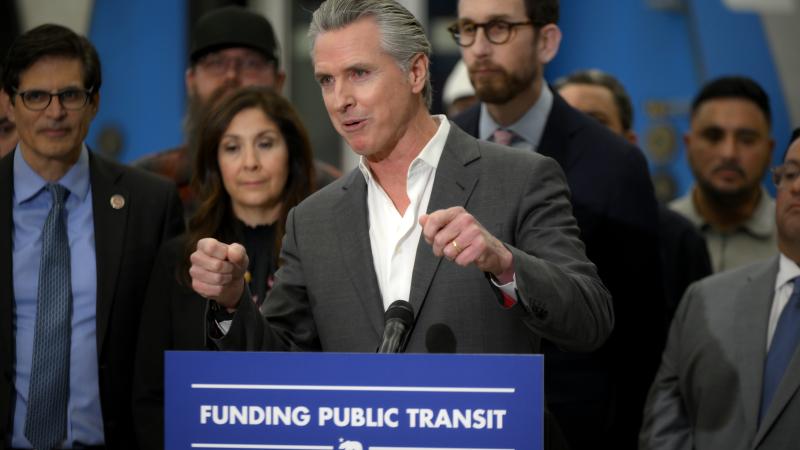Biden sends U.S. oil reserves overseas after slamming brakes on domestic production
The administration has shut down a refinery, closed about half of the National Petroleum Reserve–Alaska, and canceled oil and gas lease sales.
President Joe Biden is sending millions of barrels of oil from the U.S. Strategic Petroleum Reserve abroad even as his climate change agenda continues to stifle production by the domestic fossil fuel industry, according to critics.
Last month, more than 5 million barrels of oil were released from the SPR and sent to countries in Europe and Asia, including the Netherlands, Italy, India, and China.
About one million barrels a day are being released from the SPR, which is to continue through October. Last month, the SPR fell to its lowest level since 1986.
Biden said that releasing the reserves would help stem the rising cost of gas. The average national price of a gallon of regular gasoline surpassed $5 a gallon for the first time in June.
In late March, House Republicans' Twitter account posted: "The Strategic Petroleum Reserve is supposed to be used for national security emergencies and major weather events, not a political Hail Mary when Joe Biden's anti-energy agenda fails."
"We're certainly facing shortages here inside the United States," Rep. Austin Scott (R-Ga.) told "Just the News, Not Nosie" TV show on Thursday. "We had the opportunity to import oil from Canada through the Keystone pipeline, he canceled that while at the same time lifting the sanctions against Russia's pipeline. And now he's turning around and taking oil from our Strategic Petroleum Reserve and sending it to countries that are not our friends.
"And so he's going to go over across the sea, he's going to talk to people with the cartel OPEC and ask them to pump more oil ... and at the same time, you know, he's turning around and taking our strategic petroleum reserves. This is our reserves so that the United States can function and sending them overseas.
"It defies logic. And I'm gonna tell you, this is one of the things that when Congress flips and the Republicans take control of Congress, one of the first investigations we need to have is what was done and why it was done."
Sen. Marco Rubio (R-Fla.) wrote in an op-ed for The National Review that while Biden suggested in 2006 that the U.S. wouldn't be fighting wars in the Middle East if it was energy independent, he is now making the U.S. dependent on Venezuela and Saudi Arabia for oil and gas.
Beyond the "horrific policies" that have hindered domestic oil production under Biden and squandered the national energy independence achieved by Trump, another issue is "America's dwindling ability to actually refine oil-based products," Rubio said.
The senator noted that "U.S. refining capacity dropped by about 5 percent in the last two years alone."
No major new refinery has come online in the U.S. since 1977 as a result of the oil industry being "under assault by radical environmentalists, sympathetic politicians, and increasingly woke investors," Rubio wrote.
Noting that China overtook the U.S. as the world's leading petroleum refiner in 2020, the 2016 candidate for the GOP presidential nomination warned that Biden may ask China for gas.
"Begging China for gasoline would be short-sighted, naive, and disastrous for America," Rubio wrote. "It would be a strategic coup for [Chinese ruler] Xi [Jinping], who wants nothing more than to signal China's supremacy over the United States. And it would sink any hope of ever escaping economic reliance on the genocidal regime in Beijing."
Last month, Rubio and fellow Florida Republican Sen. Rick Scott jointly introduced the China Oil Export Prohibition Act, which would prohibit the U.S. from exporting oil and petroleum products to China.
"It's absurd that we continue to export oil to Communist China while Americans pay more than $5 per gallon of gas here at home," Sen. Scott said. "In the first three months of 2022 alone, the U.S. sent nearly 52 million barrels of oil and petroleum to Communist China.
"Meanwhile, families here dealing with skyrocketing prices are forced to choose between putting gas in their cars and food on the table for their kids. Americans must come before sales to Communist China."
Sending oil abroad is the result of U.S. oil refineries already operating at maximum capacity, according to Michael Shellenberger, author of "Apocalypse Never: Why Environmental Alarmism Hurts Us All."
"The reason the U.S. sent our oil abroad is due to the fact that our oil refineries are operating at max capacity," Shellenberger tweeted Wednesday.
In his Twitter thread, Shellenberger, who ran against California Democratic Gov. Gavin Newsom as an independent in the state's gubernatorial primary this year, linked to his Substack from last month that noted the Biden administration had shut down a refinery in the U.S. Virgin Islands last year and canceled a one-million-acre oil and gas lease sale in Alaska in May.
The cancellation of the Alaska lease was in addition to the Department of the Interior halting two leases that were being considered for the Gulf of Mexico region, CBS News reported.
In April, meanwhile, the Bureau of Land Management closed nearly half of the National Petroleum Reserve–Alaska, leaving only 11.8 million acres of the 22.8-million-acre site available for drilling.
Dispatched to explain and defend Biden energy policy in an interview on CNN last month, Secretary of Energy Jennifer Granholm left her host bewildered.
"Are you telling me you want them drilling for more oil?" CNN's John Berman asked Granholm. "You want the refineries putting out more gasoline in five or ten years?"
"What we're saying is, today, we need that supply increased," she replied. "Of course, in five or ten years — actually, in the immediate — we are also pressing on the accelerator, if you will, to move toward clean energy, so that we don't have to be under the thumb of petro-dictators like Putin, or at the whim of the volatility of fossil fuels.
"Ultimately, America will be most secure when we can rely upon our own clean domestic production of energy through solar, through wind —"
"But that's the problem for these companies," Berman interrupted. "These companies are saying, you know, 'You're asking me to do more now, invest more now, when, in fact, 5 or 10 years from now, we don't think that demand will be there, and the administration doesn't even necessarily want it to be there.'"
The Facts Inside Our Reporter's Notebook
Links
- More than 5 million barrels of oil were released from the SPR
- Just the News, Not Nosie
- wrote in an op-ed for The National Review
- introduced the China Oil Export Prohibition Act
- Shellenberger tweeted Wednesday
- Shellenberger linked to his Substack
- Department of the Interior halting two leases
- closed nearly half of Alaska's Natural Petroleum Reserve
















